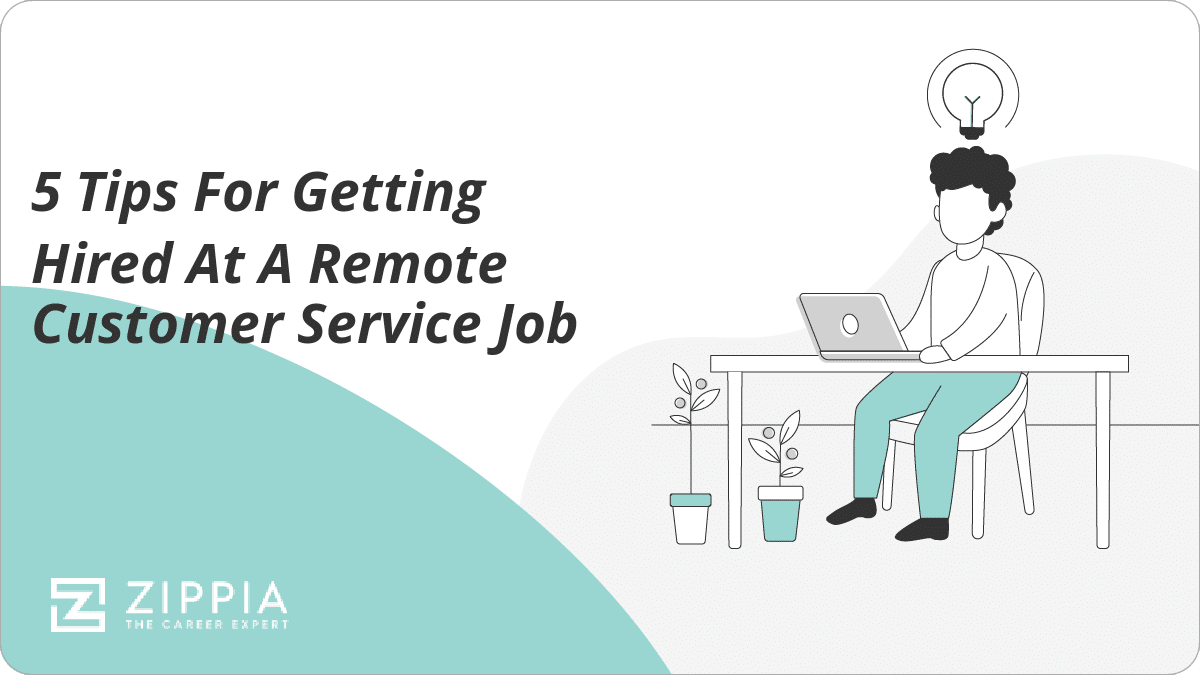- Interview Prep
- Star Method For Answering Questions
- Interview Preparation Checklist
- Star Interview Questions
- Words To Use In An Interview
- Mock Interview Preparation
- How To Make A Good Impression
- Bring Writing Samples
- How To Relax Before An Interview
- Interview Coaching
- Common Video Interview Mistakes
- Common Phone Interview Mistakes
- How To Ace Your Interview For A Remote Job
- Good Weaknesses For A Job Interview
- Good Strengths For A Job Interview
- How To Prepare For A Phone Interview
- Talk About Being Laid Off
- How To Decline An Interview
- How Early Should You Arrive For An Interview
- Types Of Interviews
- Communication
Find a Job You Really Want In
here are plenty of creative solutions to letting a future employer see the best of your professional ability. One of the best ways to help overcome this obstacle is to reach out to your network.
You could set up informational meetings or interviews with those doing what you’d like to do within your industry, or you could get some help with an internal reference.
Utilizing your network to leverage your job application is one of the most effective ways to set yourself apart from a crowd of applicants. Many companies incentivize internal references, especially within industries that always require a fresh supply of new talent. This widespread practice can be your key to landing the interview.
Key Takeaways:
-
An internal reference is a reference who works at the company you apply to.
-
Internal references are powerful ways to stand out among other candidates.
-
An internal reference does not guarantee a job interview. You still need to submit all necessary materials such as a cover letter and resume.
-
Although an internal reference helps, you still must act like a professional and do your best to represent yourself (and your reference).
-
Internal references are one reason it is important to have a large and robust professional network.

What Is an Internal Reference?
An internal reference is when someone working at a given company recommends another person for an open position at that company. An internal reference carries a different weight than other types of references because someone who is already acquainted with a company has more of a sway in the decision-making process.
Outside of a well-known, high-ranked leader within your industry, an internal reference is perhaps the best type of reference you can get. With an internal reference, you already have an established window into your prospective company. You not only have someone on the inside rooting and advocating for you, but you also have an informant who can give you inside tips and tricks.
An internal reference can also refer to someone (such as a manager or supervisor) who works at the same company as someone else and recommends that person for a promotion or a change in position internally. The same basic principles apply in this scenario; only you have the extra advantage of also being there to advocate for yourself.
Does an Internal Reference Guarantee an Interview?
To answer the question simply, no, an internal reference does not guarantee an interview. It comes down to what your actual qualifications are, as well as how well your referee can vouch for you.
If you aren’t qualified for the position you’re applying to, an internal reference is not going to pull the wool over a hiring manager’s eyes when it comes to your resume, though we appreciate the bold strategy. You still need to have a great, personalized resume and cover letter demonstrating your experience as a basic requirement.
If you are qualified for the position, though, make sure your referee knows how to approach the subject to increase your chances of getting an interview.
Your referee should send an email to the hiring manager (or whomever) containing your resume and any other applicable materials. It is crucial that your referee does more than simply say, “my friend is interested in this position; here is her resume.” The simple fact that you are friends with someone doesn’t say anything about your views on their work ability.
Instead, politely ask if your referee would include a full letter of recommendation, or some words on your talents, within the body of the email. This carries much more significance as you now have an internal worker speaking highly of your skills, experience, and fit for the position.
How to Make the Most out of an Internal Reference
There are some steps you can take to boost the effectiveness of your internal reference. To make the most of this opportunity, try doing the following:
-
Prepare everything you will need in advance. By the time a potential employer even knows your name, you should be fully prepared for action. You may have asked a friend or colleague for a recommendation, or they may have recommended you of their own accord. Either way, you should know that the process has begun.
You will need to know when your name has been given out to an employer because you will likely be contacted shortly after this occurs (if you’re qualified). Though internal references are no guarantee, they hold a considerable amount of weight for hiring managers, especially when compared to faceless online candidates.
Prepare all of the necessary materials ahead of time. Get a copy of your resume that is both up-to-date and personalized for this specific position. Also, be sure to have your portfolio, sample work, and other materials ready, and have a great understanding of the position you’re applying for.
-
Do your research. Once an employer has contacted you, try using your insider advantages to get ahead of the game. Get back in touch with your referee, or maintain ongoing communication with them throughout this process.
Ask your referee about anything you may need to know about the interviewing and hiring processes. You could ask about how their interview process went or ask more specific questions about what you will likely be asked during the interview or about the hiring manager’s personality. Compound this information with the outside research you’ve done on this organization.
Don’t feel awkward asking your referee for some help, as they most likely are eager to help you, or they wouldn’t have referred you in the first place. There may also be a referral reward up for grabs that incentivizes them to help you for some cash of their own.
-
Represent yourself and your referee well. No pressure, but remember that since you’ve enlisted a colleague’s help, you are not only representing yourself but your colleague as well. If you aren’t prompt and professional, it may reflect poorly on your referee.
Make sure that you have the proper etiquette throughout this entire process. Respond quickly to any emails or communications you receive from this employer, and be sure that you have a good knowledge of the company, its culture, and the specific duties of the position you’re applying to.
Show up to the interview before the designated start time, and come dressed in business professional attire. Send a follow-up email after the interview thanking the interviewer for their time.
Essentially, you want to follow all of the basic interviewing rules of thumb to come off as your best self and convince the interviewer that you are who your referee claimed you to be.
-
Know that you aren’t guaranteed anything. Compared to online applicants with only their resume to back them up, you do have a pretty good advantage. You already have someone who works within the company vouching that you would be the perfect fit. However, don’t get too confident.
You should approach this situation in the same way you’d approach any new job you’re applying to. Advocate for yourself during the interview, and don’t leave any relevant and important information out just because you think it has already been said before.
Remember, the hiring manager is meeting you for the first time, and you still need to try your best to make a good first impression.
Tips for Giving an Internal Reference
-
Make sure you have a work or business relationship with the candidate. It is perfectly fine if this person is your friend, but try and emphasize your working relationship as that is what really matters here. If you have no professional experience working with this person, it is imperative that you include information about how you can vouch for this person’s workplace performance.
-
Focus on why this candidate would be a great addition to the team. In your recommendation, pointedly mention ways that this person is qualified for the position and ways you envision this person contributing to the team. Help paint a picture of what working with this person looks like.
-
Be sure the candidate still goes through the formal application process. Though you’ll be helping to drive interest to this person as a candidate, they need to be clear on the fact that they still must apply in the same way everyone else does. They can, however, mention your referral within their application.
Internal Reference Template
There are many ways you could approach recommending someone, whether in person or through writing.
If you want to be extra thorough and ensure you’ve covered all your bases, and if you really want to increase your referee’s chances, you can use the following template as a guideline for structuring a referral letter or conversation:
Basic Introductory Information
[Your name and position]
[Your email address and phone number]
[Name of the candidate you are referring]
[Name of company where you worked with the candidate]
[Address of company where you worked with the candidate]
[Your relationship to the candidate]
Basic Employment Information
[Date employed from]
[Date employed to]
[Candidate’s Job Title]
[Candidate’s reason for leaving position]
[Any further relevant information]
Job Performance Information
[Rate/speak to the candidate’s general conduct]
[Rate/speak to the candidate’s time management skills]
[Rate/speak to the candidate’s communication skills]
[Rate/speak to the candidate’s relationship with other colleagues and staff]
[Rate/speak to the candidate’s relationship with clients or customers]
[Rate/speak to the candidate’s level of performance at key skills]
[If significant disciplinary actions, policy investigations, or suspicious cases were brought against the candidate, explain and justify the circumstances to the best of your ability]
[Any further information or qualifications]
- Interview Prep
- Star Method For Answering Questions
- Interview Preparation Checklist
- Star Interview Questions
- Words To Use In An Interview
- Mock Interview Preparation
- How To Make A Good Impression
- Bring Writing Samples
- How To Relax Before An Interview
- Interview Coaching
- Common Video Interview Mistakes
- Common Phone Interview Mistakes
- How To Ace Your Interview For A Remote Job
- Good Weaknesses For A Job Interview
- Good Strengths For A Job Interview
- How To Prepare For A Phone Interview
- Talk About Being Laid Off
- How To Decline An Interview
- How Early Should You Arrive For An Interview
- Types Of Interviews
- Communication





